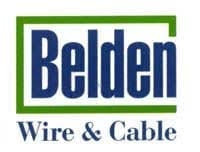Solar Lights The Way By Ame Vanorio Leave a comment
Solar energy is the fastest growing renewable in the USA and the second fastest in the world. The Why is obvious? Solar energy is an environmentally friendly, reliable source of energy.
Advantages of Solar Systems
Reliability
Photovoltaic (PV) systems are very reliable. Most solar panels have 20-25 year warranties. Maintenance for solar panels is low. In addition, no fuel has to be purchased by the corporation or the homeowner to “make” electricity from solar. The sun will not go out for another five billion years. Solar power doesn’t “go out” and offers continuous electricity through bad weather.
Safety
Safety is important. Solar systems that are well designed are very safe compared to other forms of energy. They do not use combustible fuels, have minimal moving parts and operate quietly.
Independence
One of my reasons for going solar was a desire not to support the fossil fuel industry. I did not want to support something that I believe harms the environment. I also enjoy not having an electric bill for my home. It makes me feel good that I can supply our energy needs.
According to the US Energy Information Administration coal supply’s 30% of the nation’s electricity usage. “Tracking the Sun”, a report published annually by the Lawrence Berkeley National Laboratory finds that solar prices continue to decline rapidly.
Accessible In Extreme Rural Areas
Do you live way out there? In a rural area, an island or in a tropical jungle? I live on a gravel dead-end road and it took me three years to convince FedEx that it was a real road! Solar is easy to transport and set up in rural and remote areas. You can also start small and add on to your system which is an advantage when you live remotely.
Solar is also a great way to power boats and recreational vehicles.
Solar Saves Money
Everyone needs fewer bills. Utility bills are skyrocketing. Solar power saves money. Twenty-year long cost studies show that solar can save $10,000 – $30,000 dollars over the twenty-year period.
Your exact savings will vary depending on your energy use, local utility rates and if you are off grid or tied to the electric grid. Utility companies average a rate hike of 2.2 % per year. That adds up.
Disadvantages of Solar Energy– yes there are a few
Like every other form of energy, solar has some drawbacks. The biggest drawback is that solar cannot run everything. For instance, central air conditioning and electric stoves require immense amounts of electricity.
How Much Energy Do You Use?
Utilizing solar means being conscious of your energy consumption and using energy-efficient appliances. The first thing you will need to do is to conduct an energy audit of your home. Look at your appliances and evaluate where you are using the most electricity.
Compare your current appliances to newer energy saver rated products. A wide range of appliances now run on DC power which is more efficient.
Solar Works Better In Some Areas
Solar is affected by the weather, the tilt of the earth and where you live. Some places such as the southwest are naturally more conducive to solar then Alaska. There are many good resources to help you locate the best places for solar in the USA and the best places around the world.
Initial Cost
Solar energy does have an initial cost which varies on your application and what you want to power. You should evaluate your situation to determine the return on investment. When I moved to my current property there was not even electric on the road. When the electric company did install poles and lines they wanted to charge me $8000 for the work. Ironically, I had already installed solar at a cost of just under $5000. And I was not paying an electric bill – so win-win.
The most expensive and short-lived section of the solar energy system is the battery bank. Batteries are still relatively expensive and have a 3 – 5-year lifespan.
Global Solar Supply will help you put together a system that meets your needs.
Solar Tax Deductions Help With Costs
On the flip side, many countries including the US federal government and many states offer tax deductions and rebates on solar equipment.
Environmental Impact of Solar
Another disadvantage of solar is that there are environmental and health concerns with the manufacturing of solar panels.
Grid-Tied Or Off Grid
One of your first considerations will be to decide if you want to be grid tied or off the grid.
Grid-Tied Solar Systems
Grid-Tied or hybrid systems means that you are still connected to your local electric power company. Your solar energy system would supplement your power needs. So your home would use available electricity from your photovoltaic panels first. If the weather was cloudy or it was night you may be relying on power from the grid. Or maybe all your appliances running, using more electric than your panels supplied, then your conventional electric would kick in and give you power.
Depending on your location and your power company, you can sometimes earn money from your grid-tied system. This would happen if your photovoltaic panels produced more electricity then what your house used. Then your electric company would buy back the excess electric and give you a credit or a check. It is worthwhile to contact your electric company and find out their policies on grid-tied systems.
Grid-tied systems often do not have batteries and therefore can not store power. In addition, some utility systems do not allow your inverter to work during a power outage. This is to protect linemen working to restore power. Check with your electric company on these policies before you sign a contract. It is to your advantage to have batteries and be able to power your home when the utility company has an outage.
Off Grid Solar Systems
Off-grid means that you are totally independent of your conventional electric company. This means you produce all of your own electricity needs. People chose this option for many reasons. They may desire to be independent and not rely on the electric company or government. Or their home may be in a remote area that is not served by power lines or too expensive to have them run. One advantage of being off grid is no monthly bill!
Off-grid means you are supplying all the power you need to operate whatever you wish to run. This may be one panel and a pump to draw water from a well. Or you may want to power all the appliances in your home. Two advantages of solar – flexibility and ability to add on and grow a system.
Solar Kits are available if you want an easy to assemble array.
Progress and Future Projects
Solar has a very promising future. Both on a global scale and for individuals. Prices of manufacturing PV panels is declining and making them more cost-efficient. Homeowners and industries alike are turning to solar. MIT produced a study in 2015 stating that solar had a large capacity for growth in the United States and would continue to grow as an industry.
Do You Need Help Designing Your Solar Power System?
No matter what size or type of system you need Global Solar Supply is here to help you. Founder, Joe Omweg, spent 20 years working as an industrial electrician, testing, installing, and repairing electrical systems in both commercial and residential buildings. He knows his stuff. His extensive background in the electrical sector gives you the advantage of saving time and money. GSS strives to ship your order as quickly as possible so you can get started on your way to energy freedom.
Ame Vanorio is the director of Fox Run Environmental Education Center and a freelance writer. She has lived off-grid using solar power and rainwater catchment systems for over twenty years and enjoys teaching others about alternative energy.








